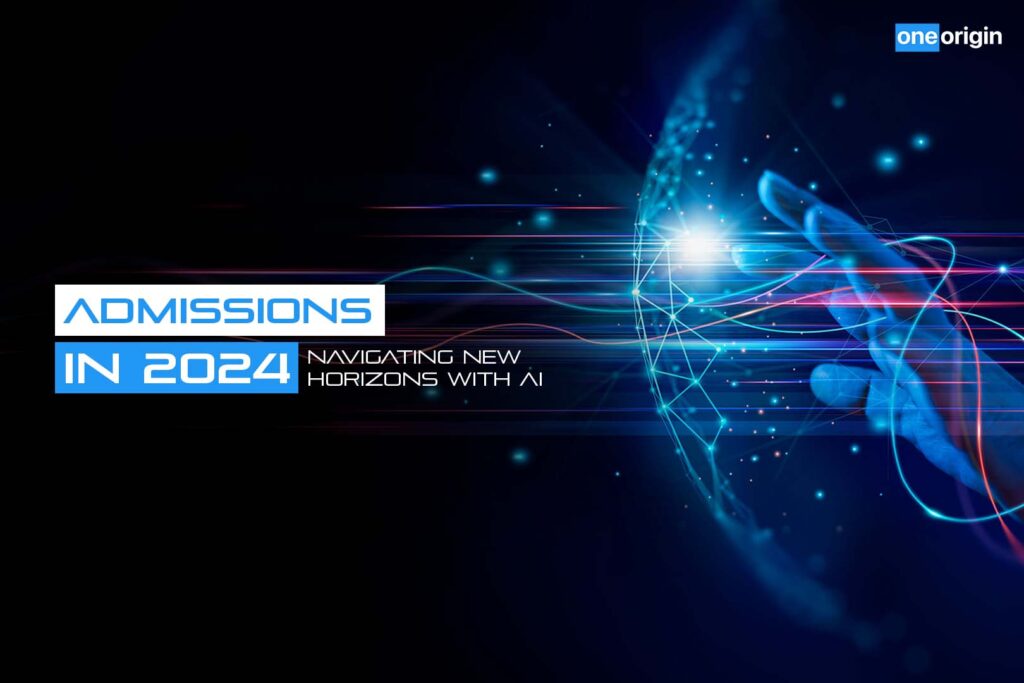Admissions in 2024: Navigating New Horizons with AI

Introduction: The Evolving Landscape of College Admissions
As we approach 2024, the College Admissions process is undergoing significant transformations. With the integration of AI in Education and shifting paradigms in Higher Education, institutions are bracing for impactful changes. The aftermath of the Supreme Court’s decision, coupled with the ongoing debates over higher education’s core mission, signals an era of substantial developments in Enrollment Management and student recruitment.
The Promise of Increased Admissions in 2024
The year 2024 is anticipated to witness a considerable increase in college admissions, a promising recovery from the pandemic’s impact. This can be attributed to several factors:
Innovative Admission Models: The adoption of direct and guaranteed admission policies is set to diversify and expand the applicant pool.
Holistic Approaches: Moving beyond standardized testing, colleges are embracing Holistic Admissions to evaluate a broader spectrum of candidates.
Pandemic Recovery: Institutions are on a path of recovery from enrollment declines, with a renewed focus on International Recruitment, especially from burgeoning education markets.
Equity in Education: The end of legacy admissions and the emphasis on race-neutral policies propel more equitable access to higher education.
When facing an enrollment surge, universities will encounter several key challenges, each requiring strategic and often innovative solutions:
Administrative Overload: A significant increase in applications can overwhelm admissions staff, leading to administrative bottlenecks. This overload can slow down the processing time for applications, affecting the overall efficiency of the admissions process.
Maintaining Admission Standards: With a higher volume of applications, maintaining consistent and fair admission standards becomes more challenging. Ensuring each application is evaluated thoroughly and impartially is crucial but difficult with the increased workload.
Student Support and Retention: Increased enrollment also means a greater need for student support services. Universities must be equipped to provide adequate academic advising, mental health support, and career counseling to a larger number of students.
Financial Aid and Scholarship Allocation: There’s also the challenge of efficiently managing financial aid and scholarships. With more applicants, there’s a greater demand for these resources, necessitating a more robust system to handle requests and allocations.
Diversity and Inclusion Efforts: With a diverse set of applicants, universities must be adept at fostering an inclusive environment. This includes not only admitting a diverse student body but also supporting them throughout their academic journey.
Technology Infrastructure: Increased enrollment requires robust technological support. Universities need to ensure that their IT infrastructure can handle the increased load, from online application portals to virtual learning platforms.
Each of these challenges requires careful planning and the adoption of efficient systems like AI-driven tools, which can significantly streamline processes and alleviate some of the pressures associated with an enrollment surge. This is where we introduce to you OneOrigin.
OneOrigin is at the forefront of providing innovative solutions for universities facing enrollment and admissions challenges. One of the standout products, Airr, is specifically designed to enhance university operations in these areas, showcasing OneOrigin’s commitment to improving the higher education landscape.
OneOrigin is transforming college admissions with Airr, its advanced AI-powered rapid transcript processor. As universities prepare for an enrollment surge, Airr stands out as a revolutionary tool, elevating the admissions process with unmatched efficiency and intelligence. Utilizing Sia™ technology, Airr goes beyond traditional tools, integrating seamlessly with university systems and leveraging cutting-edge AI, including Generative AI and Transistor models. It’s not just data processing; it’s about insightful interpretation and customization, helping universities identify their ideal candidates more effectively.
Its advanced technology streamlines data handling, significantly reducing manual workload in admissions departments and allowing staff to focus on strategic tasks like student engagement. Airr enhances the student experience with its speed and precision, smoothing the admissions process and setting a positive tone for their academic journey. Additionally, Airr aids in strategic enrollment management by providing valuable insights into applicant trends, aiding universities in making informed decisions about class composition and resource allocation.
Conclusion: A Bright Future for College Admissions
The landscape of College Admissions in 2024 is poised for significant growth and transformation. Institutions adopting AI-driven tools like Airr will navigate these changes effectively, ensuring a seamless and equitable admissions process, and ultimately contributing to a robust and diverse educational environment.



